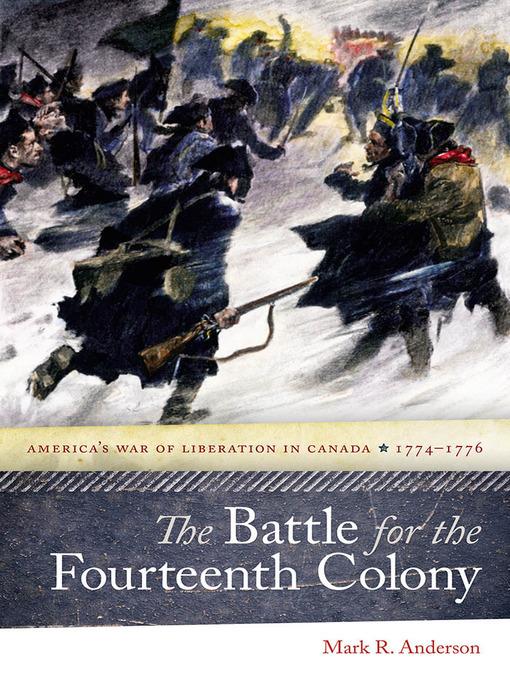
The Battle for the Fourteenth Colony
America’s War of Liberation in Canada, 1774–1776
کتاب های مرتبط
- اطلاعات
- نقد و بررسی
- دیدگاه کاربران
نقد و بررسی

August 19, 2013
Independent scholar Anderson makes a significant contribution to a neglected aspect of the American Revolution in this comprehensive, well-written monograph. He describes the Quebec Campaign of 1775–76 as the U.S.’s “first war of liberation.” The Canadians’ correspondence with the “Bostonians” led to the United Colonies’ decision “to erect the glorious standard of American liberty in Canada.” In the context of ongoing protests in Quebec against colonial policies, the movement needed “only a few sparks... to ignite a rebellion.” The ostensible liberators, including Benedict Arnold’s small outfit, initially found the Quebecois “ready to embrace the patriot cause.” Montreal submitted quietly to the Americans, but they were unable to force or negotiate Quebec’s surrender; the disastrous attack by the Americans on December 31, 1775, inspired resistance the Americans couldn’t suppress or conciliate. “Continental maladministration” handicapped the emergence of effective civilian leadership, and Anderson’s thorough description of the convoluted situation is a major strength of the book. While the main American force deteriorated in the face of Quebecois resistance, its Canadian supporters sought rural support, but their “increasingly revolutionary” approach generated “progovernment insurrection” instead. The arrival of a British relief force resulted in the subsequent abandonment of an invasion that the Continental Congress was “unprepared to control, adequately guide, or properly support.”

October 1, 2013
Anderson sheds light on a little-known episode of the Revolutionary War, highlighting an ill-fated campaign to bring Canada into the fold of American colonies. A military historian and retired U.S. Air Force officer, the author combines his knowledge of military strategy and tactics with in-depth research to demonstrate how the American tendency to intervene to "save" foreigners and guide them to democracy started even before the country technically existed. As Anderson notes in his introduction, the Canadian campaign foreshadowed later U.S. efforts--including recent forays into Iraq and Afghanistan. Indeed, while reading his book, it's hard not to be reminded how strongly "America as liberator" is entrenched in U.S. culture, militarily and politically. Anderson outlines various segments of the Canadian campaign and shows how patriot zeal led the nascent united American colonies to overstretch their resources without having a larger plan quite worked out. Thus, Canada's chances of becoming the 14th colony devolved into bad behavior by conscripts, lack of follow-through on economic promises, and misunderstandings related to language and culture. VERDICT While it may be of less interest to readers outside of New England, Ontario, and Quebec, Anderson's well-researched and thoughtful book brings a fascinating piece of history to the forefront. Recommended.--Elizabeth Goldman, Perth & District Union P.L., Perth, Ont.
Copyright 2013 Library Journal, LLC Used with permission.

























دیدگاه کاربران